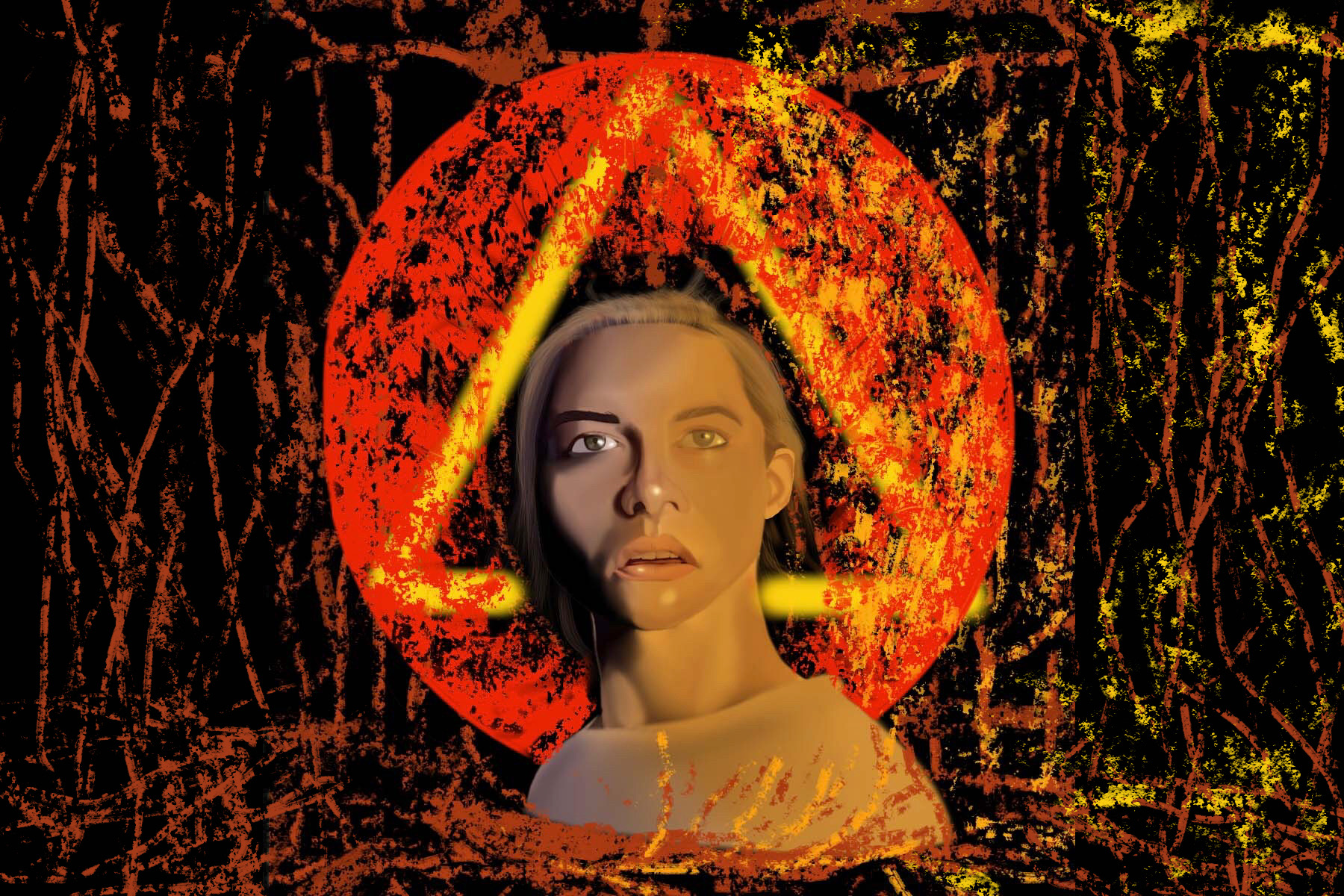Since the black and white days of Hollywood, horror has been a genre enveloped in shadows. The dark themes, gory imagery and frights of the night are staples of many horror flicks from the past to the present. Ari Aster’s most recent tale of horror, “Midsommar,” is a master class in breaking this tradition.
“Midsommar” is a vibrant and saturated film that finds its protagonists in a remote commune in Sweden. Most of the film takes place during the daytime, breaking with the trope that things can only go bump in the night in horror films. The brightness of the film parallels the brutal deaths and deep ideas the movie presents to create a perfectly balanced — and perfectly eerie — work of art.
Dani Ardor is the hurt and confused protagonist of “Midsommar.” She experiences traumatic deaths in her family which causes her mental health to decline, while simultaneously extending her fading relationship with her boyfriend, Christian. Right off the bat we can tell tensions between the two are high, as Dani needs more support than Christian is willing to give.
Due to Dani’s devastating experience with her family, Christian invites her on a trip with his friends to Hälsingland, Sweden, where they’re going to celebrate Midsummer, a Swedish festival celebrating the summer solstice. The stakes rise when the group figures out that Hälsingland doesn’t celebrate Midsummer like the rest of the country.
From assisted suicide to human sacrifice, the fictional Hargas, the native people of Hälsingland, are not the humble people they seemed to be when Dani, Christian and the rest of the crew arrived. These colorful cultists are sure to become iconic horror movie villains in due time, as their deceiving ways are creepy enough even without all the gore and violence.
Many horror fans judge a movie by how good the “kills” are. Are the deaths satisfying and original? Are we really glad it’s them and not us? Did the characters deserve it? These are questions commonly asked when it comes to violence in horror movies. As weird as it sounds, the deaths in “Midsommar” are some of the best in the entire genre.
Aster does not shy away from realistic gore in his films. 2018’s “Hereditary” had an unexpected decapitation scene that was one of the most shocking moments in all of horror history. While no heads roll in “Midsommar,” the sacrifices are brutal. Only a few deaths are explicitly shown on screen, but leaving them to imagination makes them all the more chilling. For example, a character is skinned alive but we don’t see it. The only knowledge we have that the torture happened is when we see another character wearing the dead character’s skin as a suit.
These torturous deaths are what bring Aster’s films to a whole new level of fear. He’s not afraid to push the boundaries of what’s acceptable in film. “Hereditary” was dark, disturbing and haunting, but when it comes to gore, imagery and symbolism, “Midsommar” is leaps ahead. “Hereditary” is a tight and compact story set within its own world. “Midsommar” feels more grand in the sense that it was developed by an artist with total creative freedom to make the freakiest film of the year.
While dark and disturbing, the film is also relatable. Florence Pugh — a relative newcomer to the big screen — plays Dani so believably that I almost forgot I was watching a movie. Pugh’s performance as a woman being tugged around in a relationship that she’s hanging onto by a bloody thread was realistic, painful and powerful. Not only is Dani haunted by the ghosts of her family, but she’s also plagued by Christian’s lack of awareness about their relationship.
The more Dani gets to know the mysterious Hargas, the more she realizes she fits in. Although she doesn’t agree with some of their immoral traditions, she finds herself validated in the empowering ways the Hargas lift each other up as a found family. This character arc of depression to enlightenment to revenge-seeker could only be played by Pugh. There’s no one else in the world who can spin around in circles in a flower crown and make audiences feel a range of Oscar-worthy emotions.
The theme of loss and grief are most prominent in “Midsommar,” as Dani not only loses her family but also herself in her relationship. Death is a sore subject for her, to the point where even bringing up death causes her to panic, whereas for Christian, their relationship is his sore spot. He doesn’t want to accept the end of their relationship, yet at the same time, he does not want to fix it. Dani doesn’t want to accept the death of her family, but can’t do anything to fix her family not being there.
While “Midsommar” deserves all the praise in the world, it does have some minor shortcomings. At two and a half hours of runtime, the film tended to drag on. The opening ten minutes are perfect as Dani learns the fate of her family and sobs hysterically in Christian’s lap. It sets the tone for the film perfectly, but then becomes pretty boring for a long time. It isn’t until the group reaches Hälsingland that we begin to feel fear again, but even then, the scares are few and far in between until the action increases towards the climax of the film.
Aster says the original cut of “Midsommar” was three hours and forty-five minutes long and hints that a director’s cut will be released. While the film felt long enough already, adding in some crucial, high-energy scenes could make the pacing of the film feel more put together than its final cut.
The splendor of “Midsommar” not only stems from the film’s gorgeous cinematography, but also from its performances, themes and beautifully grotesque gore. Aster’s latest has horror fans dying for more boundaries to be pushed, even though he claims his next film might not be horror. “Midsommar” is a must for horror lovers, and could quite possibly be the best horror and indie flick of the year.
















